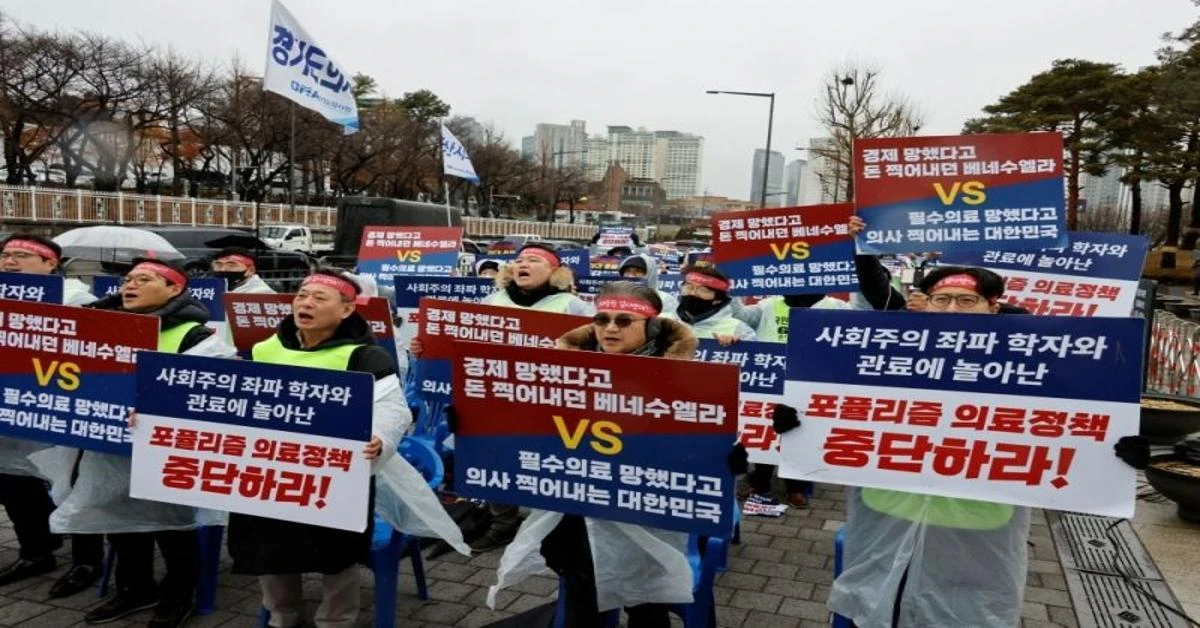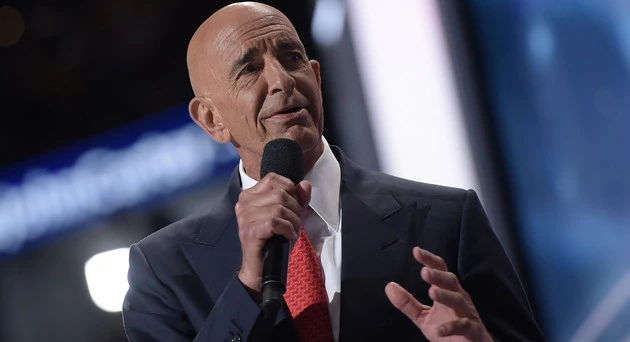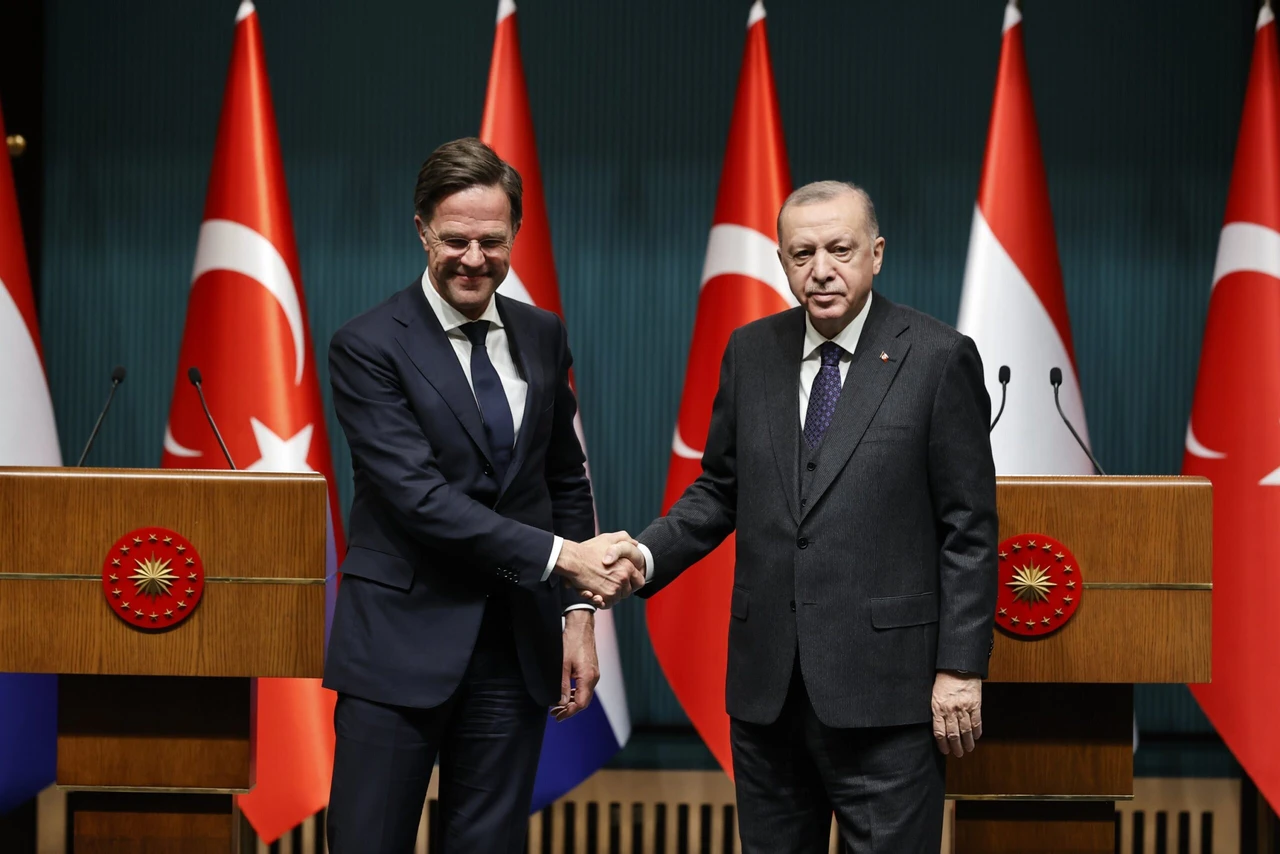Doctor protests in S. Korea disrupt hospitals’ care amid concerns

Nearly two-thirds of young doctors are protesting, causing hospitals to reject patients and postpone procedures, raising concerns about potential disruptions to the medical system
Emergency departments in three major hospitals in South Korea were placed on red alert on Thursday due to a strike by trainee doctors protesting against government plans to expand medical school admissions to enhance the health care sector.
Nearly two-thirds of the nation’s young doctors are participating in the protest, leading to hospitals rejecting patients and postponing procedures. This has raised concerns about potential disruptions to the medical system if the conflict continues.
Over 8,400 doctors have joined the strike so far, representing approximately 64% of all resident and intern doctors in South Korea, according to the health ministry.
The government has warned of potential arrests for the leading doctors of the strike. While the government aims to strengthen the health care system in one of the world’s fastest-aging societies by increasing medical school admissions, the protesting doctors argue that the core issue revolves around salary and working conditions.
Park Dan, the head of the Korea Interns and Residents Association involved in the protest, expressed willingness to face arrest to ensure their demands are acknowledged. He emphasized the collective frustration and anger among doctors, urging the government to listen to their grievances.
Government officials are urging doctors to end their protests and prioritize patient care. Meanwhile, hundreds of doctors in Seoul are planning a late-night rally in front of President Yoon Suk-yeol’s office, as reported by the Seoul Medical Association.
Although a majority of Koreans, irrespective of political leanings, support the government’s initiative as per a recent Gallup Korea survey, the protesters argue that South Korea already has an adequate number of doctors. They stress the need for improved pay and reduced workloads, particularly in critical areas like pediatrics and emergency medicine, before increasing student intake.
Reports from the JoongAng Ilbo newspaper indicate that motel rooms and rental accommodations near major hospitals in Seoul are fully booked by patients from rural areas facing delayed medical procedures.
Source: Reuters



